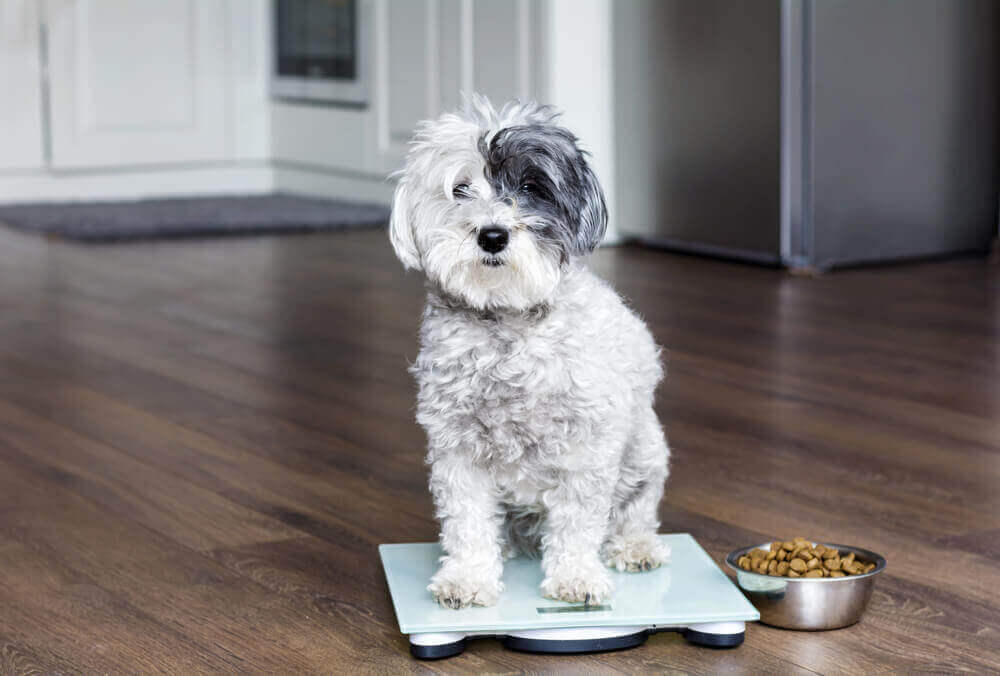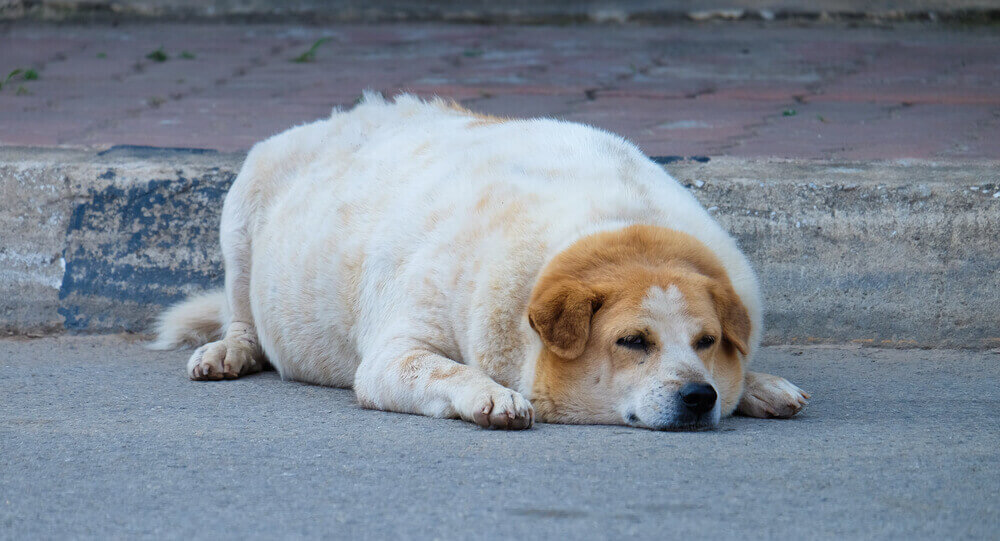
Why is pet obesity a problem? Tips to prevent obesity in pets
Can animals get fat? They most definitely do. Animals raised under human care can definitely develop excess body fat leading them to be overweight and obese. Just like humans, obesity in pets can cause adverse effects on the pet’s health and wellbeing. Overweight pets have shorter lifespan, a heavy risk of catching diseases, lower immunity and sleep problems. Canine obesity is realised by the vet community as a serious issue as more and more pet dogs are diagnosed with overweight in the recent times.
The problem of pet obesity is not a subject that is being seriously studied upon by the veterinary world. But skilled veterinary professional has started to make in-depth research about this topic and has come up with dietary tricks and workout plans to prevent overweight in pets.
How to check if your pet is obese?
Recognising and acknowledging that your pet is overweight is the key to help him/her fight against the negative effects of obesity. But often it is very hard to even suspect that there is a problem as the media bombards us with images of fat pets all the time. Pet owners cannot determine if their pets are overweight or if they are just chubby.
Is my pet overweight? This is the primary question that you need an answer for. And the best way to know if your pet is overweight is by taking him to a certified vet. Do not attempt to self-diagnose your pet no matter how experienced you think you are with animals. Weight calculations and diagnosis can be tricky and even the smartest of veterinarians can sometimes give you misguided results. An experienced vet, can however, calculate the weight of your pet and see if it exceeds the average health requirement. Your vet may conduct a few measurements to figure out your pet’s body condition score and would tell you about the measures to induce weight loss.
The consequences of obesity in animals
The accumulation of body fat leads to pet obesity. Extra body weight can cause severe problems in the pet health.
- Your pet experiences a loss of immunity. He/she will be more susceptible to diseases and their immunity power considerably decreases when compared to their much leaner counterparts.
- Your pet’s life span gets shortened. It has been found that thin and lean dogs tend to live longer than the ones weighing more. This reduction in life expectancy may be probably due to the fact that your pet is more prone to diseases when he/she is overweight.
- They can experience severe stress. Just like the way obesity is linked to excess stress levels in humans, obesity makes animals stressful too.
Obesity in pets, especially dogs may make them prone to the following diseases

- Cancer
- Diabetes Mellitus
- Hypertension
- Urinary infections
- Arthritis
- Heart Problems
- Sleep Loss
Obesity in dogs: how to care for canine health?
Since dogs are our most favourite pets, pet obesity issue mostly includes canines. Plump and round puppies may be cute, but science claims that lean dogs are always the healthier dogs. Wrong diet regimes and lack of exercise can cause overweight in dogs. According to the association of pet obesity prevention (APOP), about half of the pet dog population must be severely overweight. About one quarter of the clinically obese dogs has to suffer from diseases and early demise every year. The root of the problem is that most pet owners does not realise when their pet crosses the limit of being ‘chubby’. Along with the other listed problems, overweight pets may also suffer from ligament injuries, skin diseases and respiratory problems.
Vets recommend a simple trick to see if your dog is overweight. It is necessary that you feel their ribs when you touch your dog’s abdomen. There are also various body weight chars available in the internet which can give you a mildly accurate idea on whether your dog should lose a few pounds. Vet clinics and dog food manufacturers publish charts on dog body conditioning systems frequently.
The best thing to do, however is taking your dog to the vet for a check-up. Regular check-up can give accurate results of your dog’s body weight status.
Planning your pet diet: what to feed your pets?
Your pet’s diet plan is the first and foremost thing to pay attention to if you find out that your pet is obese. But before simply starting a calorie-less diet, you need to make sure that the overweight is not due to any other underlying health problems. Consult your vet to come up with a fitting diet plan. Here are a few tips to regulate your pet’s calorie intake.
- Food diary: By keeping a food diary for your pet, you can analyze his/her daily calorie intake. Regularly make entries for all meals and keep track of how much your pet is eating.
- Plan a meal schedule: Plan and schedule your pet’s meals. It is important to feed your pet in proper time’s every day so that they develop a routine.
- Reduce the miscellaneous treats: No matter how much you want to give your overweight pet that extra treat, refrain from it. This can also include that added kibble from friendly acquaintances. Pay attention to these extra snacks and reduce their frequency.
- Low calorie treats: If you cannot resist spoiling your pet with extra treats, try to switch to low calorie snacks that are not damaging.
- Additional supplements: Additional supplements can aid in weight loss but you may not use give them to your dog without a certified veterinarian attesting to it. Supplements like fatty acids can promote the immune system and boost the rate of weight loss.
- Avoid low quality food: Avoid low quality appetizers like fillers in your pet food. Increase the amount of nutritional value in your pet food. Good quality pet foods that contain low fattening agents can give your overweight pet sufficient nutrients.
Tips to help your pet to get moving
The best way to help your pet lose his/her overweight is to get them moving. Good workout trainings can help them lose fat at a faster rate. Consult your veterinarian to decide your pet’s workout regime. However, do not push your pet too much for it may result in abrupt injuries. There are a ton of useful activities that you can do with your dog
Walking: Walking could be the best option for a slow start in your dog’s workout regime. Furthermore, it can benefit the pet owner’s health too. A good walk in the morning/evening can help you and your dog gets some fresh air and burns some calories.
Fetch: The game of fetch is productive as well as fun. A great game of fetch can quickly add some fitness points to your doggo.
Water games: Any water related activities like swimming takes up a lot of energy and is therefore an excellent means to ‘sweat’ out some excess fat.
Treadmill: If you do not have means to walk your dog daily, treadmills are a great way to help your dog get back in shape. This will ensure your dog is getting his/her exercise even on a particularly rainy day.
Running: There is no better way to burn calories in humans than running. This is, in fact true for dogs too. You can start slow and make you dog run for a few minutes first. If you cannot run with them, let them off the leash and ride along with them.
Conclusion
Pet obesity is trending as a worldwide issue. It is very important to manage your pet’s weight unless you want them to suffer from a series of illnesses. Good diet regime and proper workout routines can help us reduce the incidence of pet obesity.
Recent Posts
- HOW TO PREVENT HAIRBALL ISSUES AND VOMITING IN CATS
- Dental pain in cats: signs, remedies and common dental problems
- Benefits of mobile pets grooming over salons: How to choose the best mobile grooming service in Sharjah?
- Smelly dog? Here are a few tips to remember
- TIPS TO KEEP YOUR PET HEALTH AND PHYSICAL ACTIVITY
Recent Comments